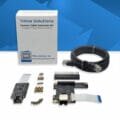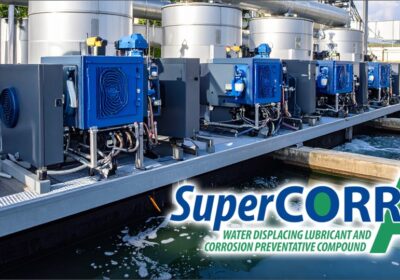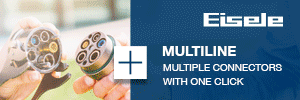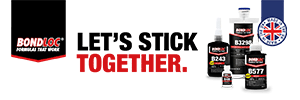~ Pailton Engineering to continue supplying traditional components through testing times ~
The shift to electric vehicles is already having a transformative impact on the market for components. OEMs and their suppliers are making different strategic decisions. While some move away from providing parts for traditional vehicles in favour of components built for electric vehicles, others are retaining flexibility and promising to continue the supply of parts for ICE vehicles. Here, Roger Brereton, head of sales at steering and suspension parts manufacturer Pailton Engineering, explains why his company is keen to stick to the latter strategy.
Electric vehicles have gained increasing momentum worldwide as governments, industries and consumers prioritise sustainable transportation. In the US, since the beginning of the Biden Administration, the number of publicly available fast charging ports has increased by more than 70 per cent.
Although the automotive sector is leading this transition, the commercial vehicle sector is following suit. This was in evidence at the Busworld exhibition in Brussels last October, one of the world’s largest exhibitions of its kind for the bus and coach sector. As I walked around the vast exhibition halls, there were very few diesel vehicles, with mainly electric and hydrogen vehicles among the more than 200 buses on show.
As commercial vehicles evolve toward electric propulsion, traditional parts suppliers face unique challenges. Many components integral to traditional internal combustion engines become obsolete in the EV landscape. For example, an electric powertrain typically has approximately 20 parts, compared to around 2,000 in an ICE system.

Facing the challenge
Dana Inc, a global leader in the manufacture of axles, drive shafts and other parts, is one company that is investing heavily in electric motors and other components. In a recent article in the New York Times, Dana’s chief executive is quoted as saying, ”You don’t have a choice… sooner or later, you’d be a melting iceberg.”
As a result of this shift, many are expecting widespread job losses. In the automotive sector, this is already underway. The head of the Germany-based Center of Automotive Management predicts suppliers will cut their workforce by about 20 per cent because of the shift from ICE vehicles to electric vehicles.
As well as the risk to workers, there are also risks to OEMs and tier one suppliers who still require components. A useful report from McKinsey & Company highlights two important risks. The first is what it terms ”diseconomies of scale.” As the supply of components designed for ICE vehicles shrinks, there is a potential for prices to increase. The second risk is of recalls and a likely shortage of aftermarket parts in the years after 2030.
The challenge of discontinued parts
A consequence of some suppliers shifting resources away from supplying traditional components in favour of e-mobility is growing difficulty in sourcing components. When a major parts supplier suddenly discontinues a key component, OEMs and tier one suppliers find themselves scrambling for alternative suppliers, while facing the dual risks of diseconomies of scale and risk of recalls.
However, although EV and advanced electric components will occupy a growing market share, core components such as suspension and steering parts will still represent a larger, albeit decreasing, share of the market. Some components will need to evolve, but in the short-term the chassis and body structure of an electric vehicle will not change fundamentally from that of its ICE predecessors. Thus, there is a continuing need for parts suppliers to offer flexibility, standing ready to supply components for both ICE and electric vehicles.
At Pailton Engineering, design flexibility has always been a key part of our philosophy. There are risks and opportunities in every strategy, but while we continue to develop components for electric vehicles, we are happy to continue supplying steering and suspension parts that other, larger suppliers might have discontinued.
Pailton Engineering supplies steering and suspension components for commercial and military vehicles. To view the full product range, visit pailton.com








